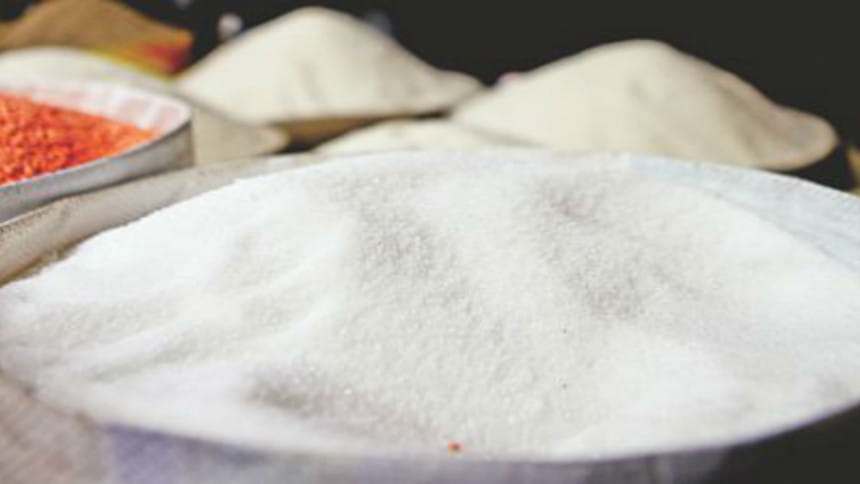Sugar intake 'should be halved'

A committee of scientific experts is calling on the government to halve the recommended daily intake of sugar.
Advisers on nutrition say no more than 5% of daily calories should come from added sugar - about seven level teaspoons.
The guidelines are in line with new World Health Organization proposals.
According to existing research, all age groups in the UK consume at least twice this limit.
The Scientific Advisory Committee on Nutrition (SACN), which advises Public Health England and other government agencies on nutrition, wants the recommended daily intake of sugar to be halved to reduce obesity risk and improve dental health.
Prof Ian Macdonald, chair of the working group of the committee, said: "The evidence is stark - too much sugar is harmful to health and we all need to cut back.
"The clear and consistent link between a high-sugar diet and conditions like obesity and type 2 diabetes is the wake-up call we need to rethink our diet.
"Cut down on sugars, increase fibre and we'll all have a better chance of living longer, healthier lives."
The government said it was accepting the recommendations and will be using them to develop its national strategy on childhood obesity, which is due out later this year.
The main sources of sugar in the diet are sweetened drinks and cereal, confectionery, fruit juice, and sugar added at the table.
A single can of fizzy drink contains about nine teaspoons of sugar.
Prof Judith Buttriss of the British Nutrition Foundation said the type of sugar targeted was known as free sugar - all the different types of sugar that we have in our diet, excluding the sugars that are found in fruit and milk.
"What the recommendations are saying is we've all got to cut down so we're getting no more than 5% of our total from these free sugars," she told the BBC Today Programme.
Analysis: Adam Brimelow, health correspondent
It is one thing setting out what people should aspire to eat, quite another making it happen.
Achieving the expected threshold for added sugar - no more than 5% of calories consumed - will be a challenge for government, industry and the public.
At the moment, the average intake in all age groups is at least twice this limit.
The health arguments are compelling, but will people want to change their eating patterns, and will they be able to afford it?
The food industry says it is already working to cut added sugars.
Some health campaigners say clearer labelling will be needed so people can see at a glance how many teaspoons of sugar have gone into each portion.
The British Dental Association (BDA) has called on the government to take heed of the latest advice.
Tooth decay is the biggest cause of hospital admissions among young children.
Mick Armstrong, chairman of the BDA, said: "The government now has the evidence and a clear duty to send the strongest possible signal to the food industry that while added sugar might be helping their sales, it is hurting their customers."
The food industry has said calories in household foods and drinks have been gradually lowered in recent years, including sugar reductions and changes to portion sizes.
The Food and Drink Federation described the goals set out in the report as "stretching".
Director general Ian Wright said: "The most thorough scientific review of carbohydrates and health carried out in recent years should leave people in no doubt that sugars can be enjoyed safely as part of a varied and balanced diet."
He added: "Demonising any one ingredient in the obesity debate isn't helpful."
Free sugars
According to health experts, 5% of daily energy intake is the equivalent of 19g or five sugar cubes for children aged four to six, 24g or six sugar cubes for children aged seven to 10, or seven sugar cubes for those aged 11 and over, based on average diets.
Many health campaigners want to see a tax on sugar, with doctors' leaders joining the call this week.
The British Medical Association said a 20% levy on sugary drinks would be a step towards the long-term goal of taxing a wide range of products in the fight against obesity.
The government has said it will not be introducing a sugar tax.

 For all latest news, follow The Daily Star's Google News channel.
For all latest news, follow The Daily Star's Google News channel. 



Comments